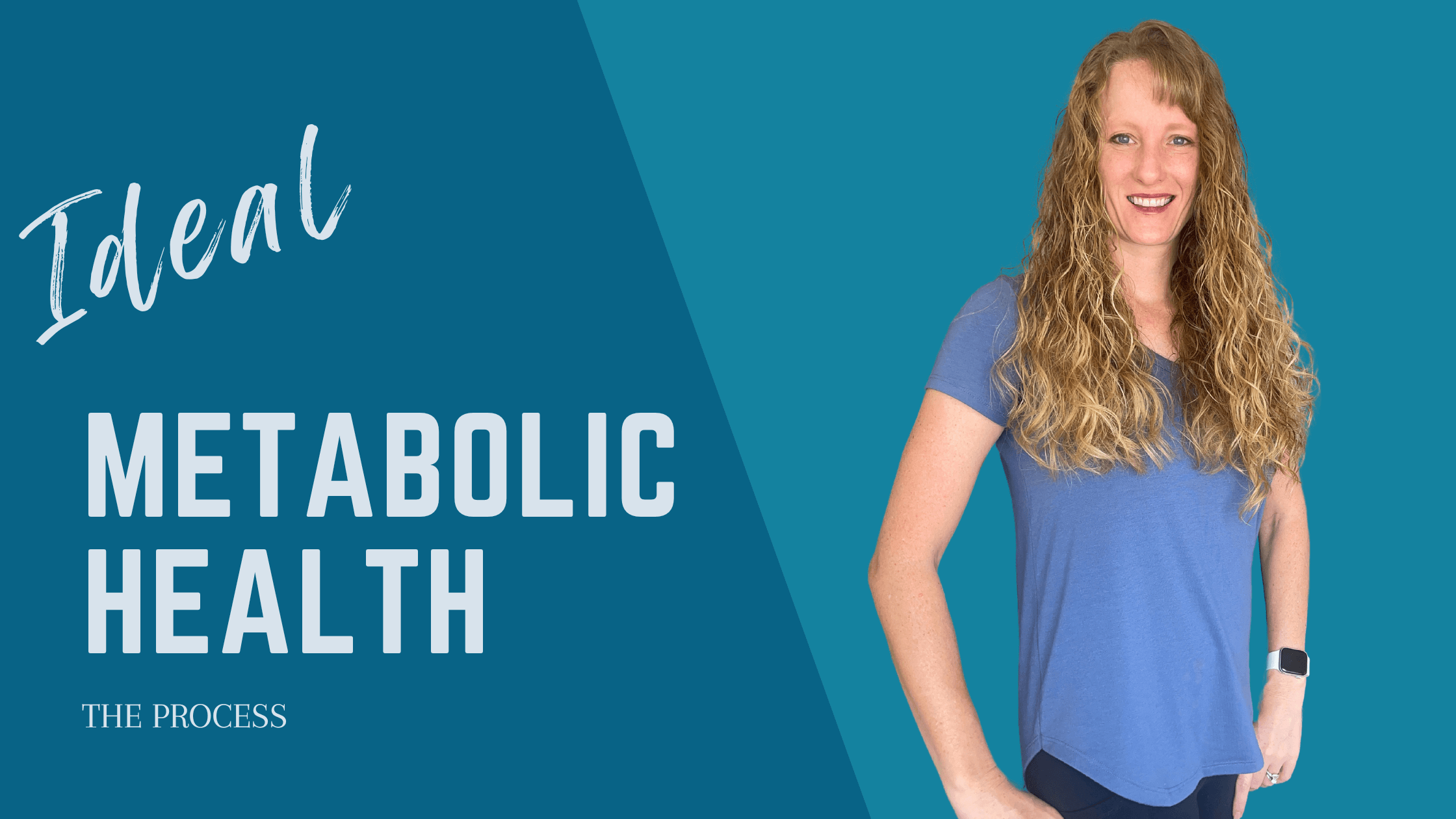The episode of the Holistic Health Bites podcast with Functional Nutritionist Andrea Nicholson highlights the fundamental aspects of achieving optimal metabolic health by focusing on essential habits rather than complex solutions. Important practices discussed include proper eating hygiene, which emphasizes mindful eating, thorough chewing, and avoiding distractions to enhance digestion and nutrient absorption. Additionally, the episode underscores the significance of quality sleep, explaining how poor sleep hygiene impacts various health metrics and provides tips for creating a conducive sleep environment.
Another critical element is the exposure to sunlight, which facilitates circadian rhythm regulation, vitamin D production, and boosts mood while reducing stress levels. Proper hydration is also essential, not just through water intake but balanced with electrolytes for optimal body function. The episode stresses the importance of whole, natural foods, and regular physical activity to ensure that the body has suitable building blocks for maintaining tissue quality and metabolic activity.
Finally, the episode emphasizes that mastering these foundational habits is crucial before engaging in more advanced health interventions, as consistency in these daily routines is integral to long-term well-being. Simple and accessible changes such as mindful eating, adequate sleep, sunlight exposure, hydration, wholesome nutrition, and regular movement form the pillars of metabolic health, making these "boring" practices key to vitality.
Read more...
Magnesium is an essential mineral involved in over 600 chemical reactions in the body, yet it is one of the most commonly deficient nutrients. It is crucial for energy production, muscle and nerve function, blood sugar control, blood pressure regulation, and overall heart and bone health. Ensuring an adequate intake of magnesium can help support these bodily functions and potentially reduce the risk of related health conditions.
A deficiency in magnesium can lead to various health issues such as high blood pressure, heart disease, diabetes, migraines, anxiety, depression, muscle cramps, and insomnia. Each of these conditions has symptoms that can manifest more intensely when magnesium levels are low, highlighting the importance of maintaining adequate magnesium levels. Factors contributing to magnesium deficiency include poor diet, stress, certain medications, and digestive issues.
Different forms of magnesium supplements exist, each with varying degrees of absorption and effectiveness. Common forms include magnesium glycinate, known for its high absorption rate and use for sleep and relaxation, and magnesium taurate, often recommended for heart health. By selecting the appropriate form of magnesium and ensuring proper supplementation, individuals can address deficiencies and promote better overall health.
Read more...
Achieving ideal metabolic health requires following a methodical, step-by-step process. The journey begins by focusing on liver, detoxification, and gut health. These systems are crucial for processing nutrients, filtering toxins, and supporting immune function. Symptoms like constipation, skin issues, and inflammation indicate that detox pathways may need attention. The initial phase involves cleansing the digestive tract with quality nutrients while avoiding stressors like alcohol and refined sugars. By doing so, you spark metabolic function and reduce inflammation.
Next, it's essential to "feed the metabolic fire" by adjusting food combinations and increasing nutrient intake, especially for those with a history of dieting. This phase focuses on muscle building, hormone regeneration, and overall tissue repair, supported by a protein-rich and diverse diet. While exercise can be moderately increased, the focus remains on healing and reducing stress.
The final stages involve fine-tuning body composition and fasting. Balancing blood sugar, insulin, and sex hormones prepare the body for targeted fat loss and muscle gain, while proper nutrient plans are introduced. Lastly, various types of fasting can help break food addictions, repair cells, and improve immune function, culminating in a sustainable, healthy metabolic state.
Read more...Next, it's essential to "feed the metabolic fire" by adjusting food combinations and increasing nutrient intake, especially for those with a history of dieting. This phase focuses on muscle building, hormone regeneration, and overall tissue repair, supported by a protein-rich and diverse diet. While exercise can be moderately increased, the focus remains on healing and reducing stress.
The final stages involve fine-tuning body composition and fasting. Balancing blood sugar, insulin, and sex hormones prepare the body for targeted fat loss and muscle gain, while proper nutrient plans are introduced. Lastly, various types of fasting can help break food addictions, repair cells, and improve immune function, culminating in a sustainable, healthy metabolic state.

Transitioning off semaglutide medications like Ozempic and Wegovy safely without regaining weight is a common concern. These drugs, a class of GLP-1 receptor agonists, mimic the natural GLP-1 hormone that suppresses appetite and promotes fullness. However, relying solely on these medications without lifestyle changes can lead to muscle loss, sagging skin, and quick weight regain once the medication is stopped.
To avoid these pitfalls, it's essential to combine the use of semaglutides with healthy dietary habits and lifestyle modifications. Focusing on a balanced diet, sufficient protein intake, and regular exercise can help maintain muscle mass and metabolic health. Incorporating good quality sleep and effective stress management further supports long-term weight management, minimizing the need for prolonged medication use.
In summary, while semaglutides can be effective for weight loss and managing diabetes, they should not be seen as a cure-all. Sustainable results come from a holistic approach that includes healthy eating, regular physical activity, and overall wellness practices. If used, these medications should be administered in the smallest effective dose for the shortest duration, always in conjunction with positive lifestyle changes.
Read more...To avoid these pitfalls, it's essential to combine the use of semaglutides with healthy dietary habits and lifestyle modifications. Focusing on a balanced diet, sufficient protein intake, and regular exercise can help maintain muscle mass and metabolic health. Incorporating good quality sleep and effective stress management further supports long-term weight management, minimizing the need for prolonged medication use.
In summary, while semaglutides can be effective for weight loss and managing diabetes, they should not be seen as a cure-all. Sustainable results come from a holistic approach that includes healthy eating, regular physical activity, and overall wellness practices. If used, these medications should be administered in the smallest effective dose for the shortest duration, always in conjunction with positive lifestyle changes.

The supplement industry is a vast, nearly $200 billion global market that varies widely in quality, benefit, and risks. While supplements can significantly aid in achieving health goals such as improving fitness, rebalancing nutrient deficiencies, and eliminating harmful microbes, they are not a cure-all solution. It's crucial to use them strategically and aim to reduce dependence on them over time.
Choosing the right supplements is essential, as low-quality products can be ineffective or even harmful. Consumer-grade supplements, often found in local stores and online, may contain proprietary blends, synthetic nutrients, fillers, and hidden ingredients that are inconsistently dosed and potentially contaminated. On the other hand, pharmaceutical-grade supplements, available through reputable suppliers, are stringently tested for purity, bioavailability, and accurate dosing, ensuring a higher and safer quality.
When purchasing supplements online, it's important to buy directly from manufacturers or verified suppliers to avoid counterfeit products. Third-party certifications such as NSF, Non-GMO Project Verified, and US Pharmacopeia can help identify high-quality supplements. Remember, supplements should be used as necessary, much like medications, to support the body's natural healing processes.
Read more...















